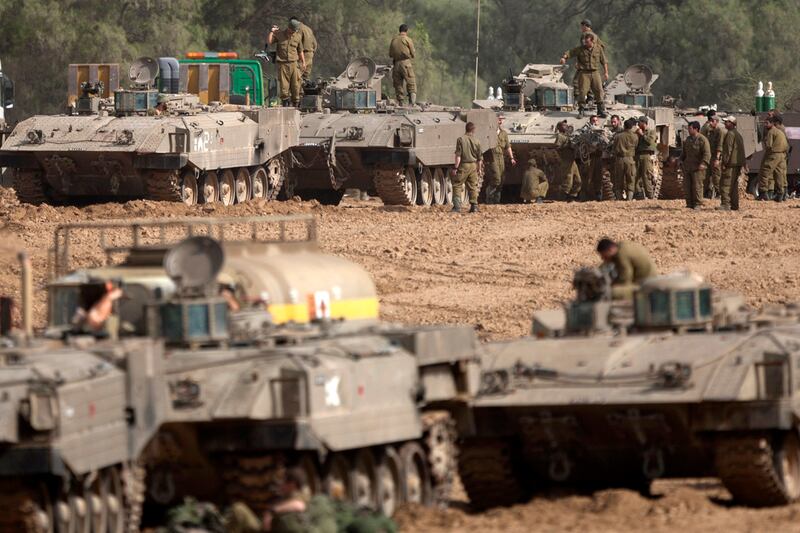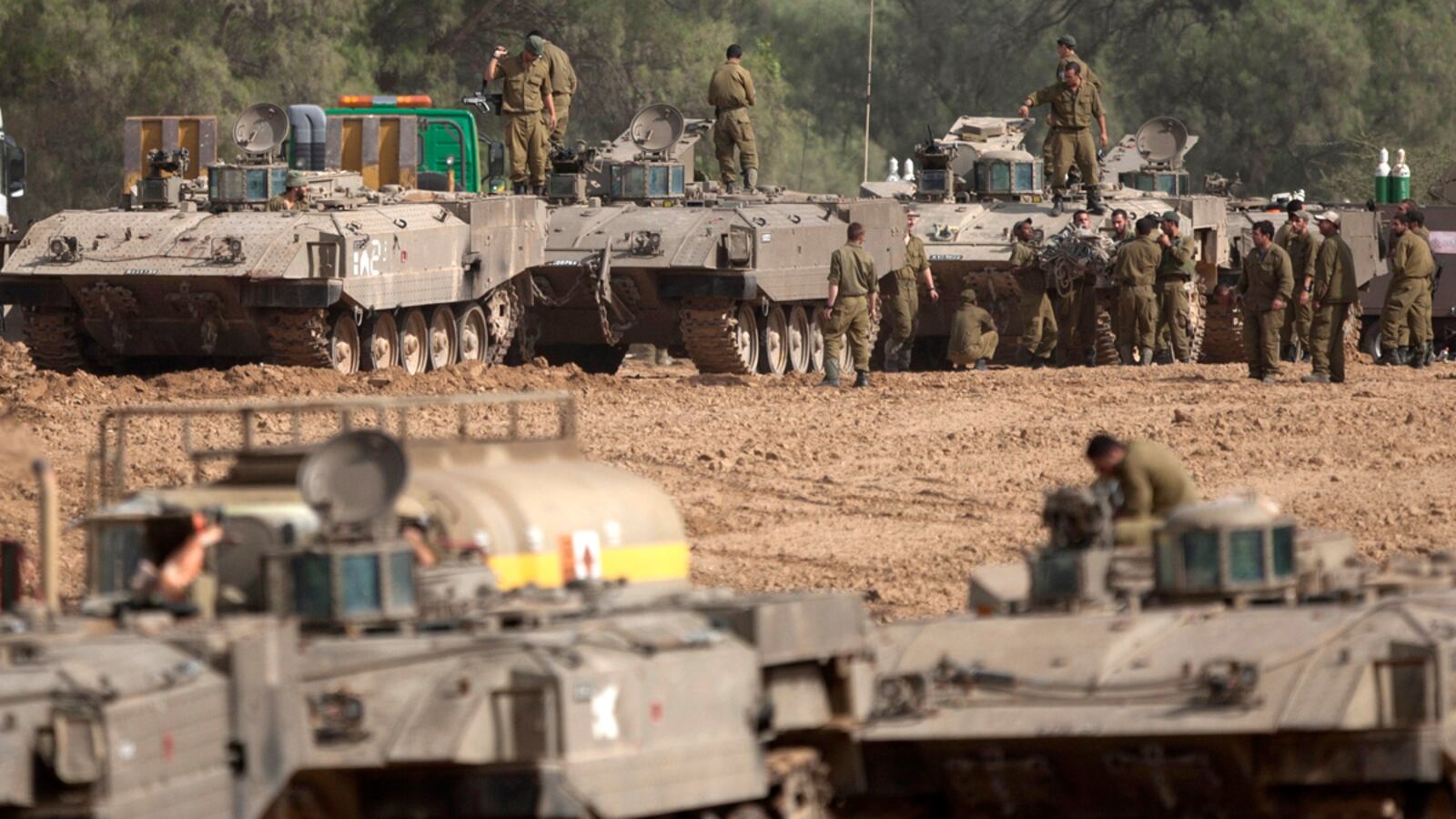On the third day of Israel’s war against the Islamic Hamas group in Gaza, most signs are pointing to a further broadening of the campaign. Israel is calling up large numbers of reservists for the first time in years. Flatbed trucks have been spotted carrying tanks toward Gaza. And Israeli officials are using every available platform to signal that the offensive is still in its early stages.

But while there’s pressure on both sides to keep up the fire—which has so far killed around 30 Palestinians and three Israelis—there are also plenty of risks to a reprising of the three-week assault Israel waged on Gaza in 2008–2009 that killed more than 1,300 Palestinians.
Gamblers don’t usually lose money betting on escalation in the Arab-Israeli conflict. Nonetheless, even as Israeli soldiers mass along the border, here are three factors working against an all-out war in Gaza.
(1) Israeli elections: Israeli voters tend to reward their leaders for short, decisive wars and punish them for long, messy ones. With elections just 67 days away, Prime Minister Benjamin Netanyahu must certainly be taking that into account.
So far, the effort to end rocket attacks from Gaza is drawing wide public support. “The feeling of most Israelis is, there he is, retaliating aggressively against Hamas and doing what he should be doing,” says David Nachmias, a political scientist in the School of Government at Herzliya’s Interdisciplinary Center. “It will absolutely be good for Netanyahu.”
But a ground war would almost certainly raise the Israeli death toll and deepen the country’s isolation. In particular, Netanyahu would have to worry that hundreds or thousands of Palestinian fatalities could lead Egypt’s Islamic government to sever diplomatic ties, a huge blow after 33 years of peaceful relations. “When you go in on the ground, the potential for complications is huge,” says Doron Avital, a member of the opposition Kadima Party and a former commander of the Israeli Army’s elite Sayeret Matkal unit. “I have no doubt Bibi is taking that into account,” he told The Daily Beast, referring to Netanyahu by his nickname.
There’s also a personal calculation for Netanyahu. A decisive outcome to the Gaza war might discourage his rival, former prime minister Ehud Olmert, from entering the race—something Netanyahu is keen to do. Conversely, the more fallout Olmert can point to, the more likely he is to jump in.
(2) The Egypt factor: Egypt’s Islamic government, which has significant influence over Hamas, also wants a quick end to the war.
Egypt’s natural inclination is to support Hamas, an affiliate of the Muslim Brotherhood—the group that now dominates Egyptian politics. The unprecedented visit to Gaza by Egyptian Prime Minister Hisham Qandil today is a sign of that support and a reminder of the dramatic changes underway in Egypt since the collapse of Hosni Mubarak’s regime almost two years ago. “Israel should respect the charters and agreements that it has signed,” Qandil said during a stop at Shifa hospital in Gaza City.
But the visit is also an indication that the war makes the government in Cairo uncomfortable. The longer it lasts, the more pressure President Mohamed Morsi could come under from Arab protesters to punish Israel diplomatically and help the Palestinians—perhaps by allowing freer movement between Gaza and Sinai. Acquiescing would potentially jeopardize Egypt’s economic recovery and its effort to bring lawless Sinai under control.
“With all due respect to the wonderful and warm words of the Egyptian government, that’s the only thing they’ve been doing so far in terms of support, humanitarian aid, money, or anything else for the Palestinians,” said Ruth Wasserman Lande, who served as Israel’s deputy ambassador in Cairo from 2003 to 2006.
“I think they know their interests lie in being a mediator in this case and brokering a ceasefire,” she said.
(3) The stakes for Hamas: Whatever credibility or morale Hamas gains from confronting Israel—including firing rockets on Tel Aviv, as it has endeavored in the past two days—it has more to lose from a prolonged conflict with the Jewish state.
Since grabbing power in Gaza in 2007, Hamas has evolved from a disciplined militant group to an institutional power with interests and assets. Its revenue alone from taxing commerce through the illicit tunnels that run between Gaza and Egypt is estimated at no less than $179 million a year. A construction boom has also helped lined the pockets of the ruling elite.
As Israel runs out of militants and rocket launchers to target in Gaza, it will increasingly go after Hamas’s tangible assets—and its political leaders—something the group hopes to avoid.
Of course, none of these factors guarantee a ramping down of events in Gaza. Israel has already put the war machine in motion, in a mobilization that has a momentum of its own. Betting that the sides will stop short of an all-out war is an increasingly risky gamble.





